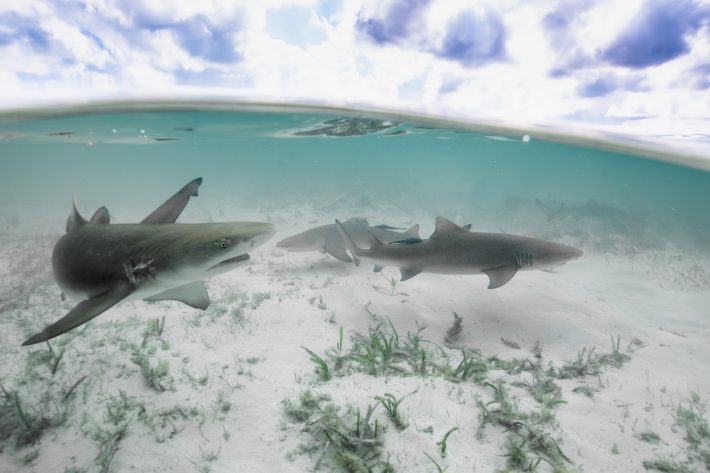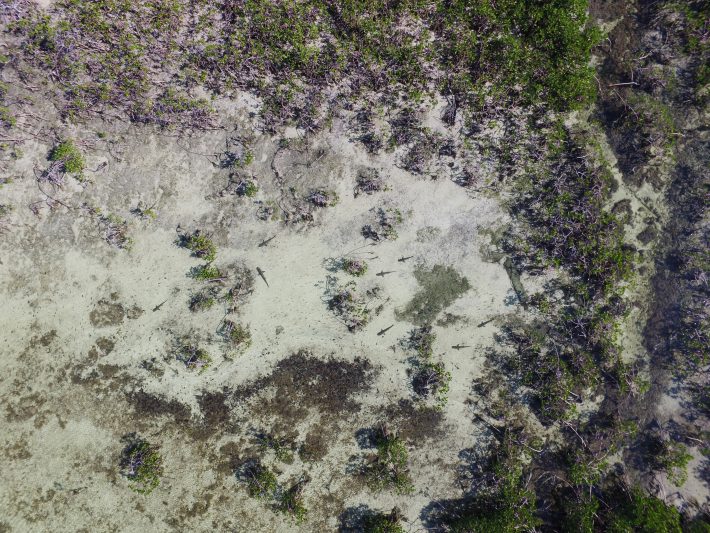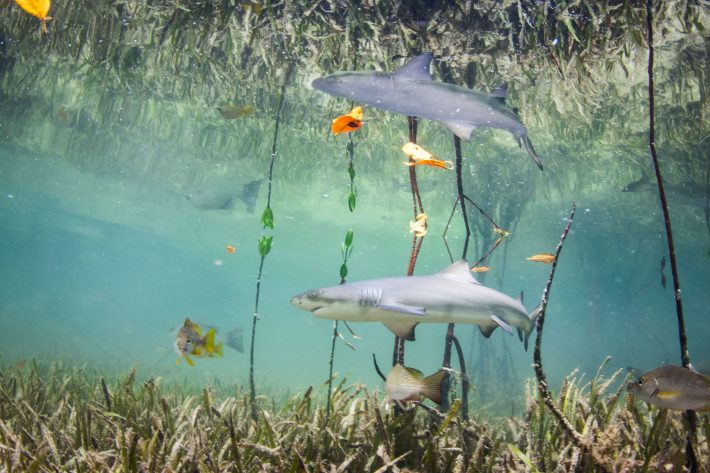Lemon sharks – live fast, die young
Leibniz-Institute of Freshwater Ecology and Inland Fisheries press release.
New research published in Journal of Animal Ecology demonstrates that lemon sharks exhibit different personalities and these can determine the course of life.

Lemon sharks have a personality and this can make a difference for their life-history. Risk-taking individuals are expected to grow better but also die faster than the less explorative individuals. Such trade-offs can maintain multiple phenotypes in a population by allowing individuals with different behavioural strategies to achieve comparable fitness, according to the hypothesis that an international team with the Leibniz-Institute of Freshwater Ecology and Inland Fisheries (IGB) has thus tested.
An international team around Félicie Dhellemmes from IGB investigated the behaviour and life-history of lemon sharks in the Bahamas. The team could show: Lemon sharks exhibit consistent individual differences in behaviour – they have a personality. And this personality can, under certain circumstances, determine the course of life.

The more explorative sharks in captivity took more risks in the wild and grew faster. In turn, larger, fast-growing sharks had lower apparent survival. But surprisingly, this was only true in one of the two shark populations the team tested. In the other group with a higher predator pressure, fast-growing sharks were also more likely to die, but this was not linked to personality and risk-taking behaviour. In a predator-rich environment, sharks may not fully behave according to their personality, making the POLS impossible to detect”, says IGB researcher Félicie Dhellemmes, first author of the study.
Researchers explain differences in personality with the pace-of-life-syndrome (POLS) hypothesis, which gives an evolutionary explanation for the maintenance of phenotypic variation within populations. This theory says that there is a link between life-history and personality.

Life-history trade-offs occur when the optimal response for one trait is reached at the expense of another. Such trade-offs can maintain multiple phenotypes in a population by allowing individuals with different behavioural strategies to achieve comparable fitness. For example, fast growth might be reached at the expense of survival, when the additional foraging effort is associated with decreased vigilance towards potential predators. Fast-growing individuals might then reach sexual maturity faster, increasing their fitness but they might also die sooner than slow growing individuals, resulting in equivalent fitness.
“Empirical support for the POLS hypothesis remains limited and ambiguous. Our study demonstrates that the association between personality and life-history is favoured in some ecological contexts but not in others. We identify predator and resource abundance as two main potential drivers of the personality mediated trade-off”, concludes Félicie Dhellemmes.
You can read the article for free here:
Media contacts:
Félicie Dhellemmes
Leibniz-Institute of Freshwater Ecology and Inland Fisheries (IGB)
felicie.dhellemmes@gmail.com
Prof. Jens Krause
Leibniz-Institute of Freshwater Ecology and Inland Fisheries (IGB)
j.krause@igb-berlin.de
Nadja Neumann
Media Relations IGB
nadja.neumann@igb-berlin.de
Like what we stand for?
Support our mission and help develop the next generation of ecologists by donating to the British Ecological Society.